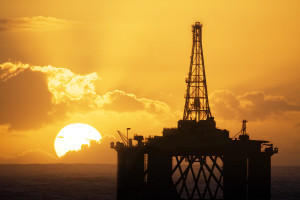Expert witnesses for the US government in its environmental lawsuit against British Petroleum (BP) took the stand this week in the debate over how much of the potential $13.7 billion in Clean Water Act penalties the oil giant should pay for its role in the 2010 Gulf oil spill. The ongoing legal dispute is reaching its final stages, and the US Justice Department is turning to environmental experts to convince Judge Carl Barbier to find the company legally responsible for the maximum fine.
BP Oil Spill Trial Enters Final Penalty Phase
The civil lawsuit filed by the Department of Justice against BP has been in process since 2013, and unfolded in three acts. First, Judge Barbier found the company to be “grossly negligent” in the spill and mostly to blame for the disaster; second, the Judge determined that 3.19 million barrels of oil were spilled, and capped the potential damage at $13.7 billion ($4,300 / barrel); and now, in the third phase, Judge Barbier must determine whether or not BP should pay the full damage award.
The Justice Department, citing the earlier decisions that identified the company as “grossly negligent,” has argued that the company should pay $11.7 – $13.7 billion of the fine for its role in the spill. DOJ Attorney Steve O’Rourke argued, “The penalty is going to have to be high enough for companies of this size to even notice, but not so high as to be ruinous to their operations,” and asked the court to impose a significant portion of the fine. BP, in response, has pointed to lower oil prices and diminished value of BP production to argue that the amount the DOJ is requesting would be more than the company could afford at this time. Further, BP has argued that it was heavily involved in the efforts to clean the spill which should mitigate damages it is legally responsible for.
DOJ Presents Environmental Expert Witnesses
In support of its claim that BP should face the maximum punishment available under the Clean Water Act, the DOJ has called expert witnesses to testify to the significant negative impact the spill had on the Gulf coast region. Dr. Stanley Rice, a toxicology expert retired from the National Oceanic and Atmospheric Administration, took the stand to criticize a BP expert report on the level of toxicity in the Gulf waters following the spill. According to Dr. Rice, the BP report did not focus on the surface waters or a deep-sea plume of oil and thus underestimated the negative effect of the disaster.
The DOJ also called Donald Boesch, an environmental expert witness from the University of Maryland Center for Environmental Science, who testified that the harm to sea-life and microbes could leave a lasting impact on the Gulf ecosystem and food chain. Like Dr. Rice, Boesch argued that BP had underestimated the negative effect the spill had on the environment.
DOJ Calls Experts on Community Impact
In addition to its environmental experts, the DOJ called witnesses to explain the cost to the Gulf coast communities. Diane E. Austin, an Anthropology director and professor at the University of Arizona, also took the stand to speak on the effect of the spill. According to Austin, the spill not only had a significant negative effect on the environment, but also had a negative economic impact on the Gulf coast communities that many residents could not rebuild from.
Richard Clapp, an environmental health professor from Boston University, offered expert testimony supplementing Austin’s by noting that in addition to economic concerns, the Gulf coast residents are at risk for illness or other health effects. Testifying that a number of serious health problems among responders and community members have already surfaced, Clapp warned that the issue could potentially worsen over time.
Across its expert witnesses, the DOJ attempted to construct a narrative that demonstrated BP’s negative impact on the environment and on the Gulf coast communities. By painting the full picture of the aftermath of the Deepwater Oil Spill, the government argues that the company should be forced to pay near the maximum fine allowable under the Clean Water Act. BP will present its own expert witnesses next week as the trial continues. A ruling is not expected until April.




